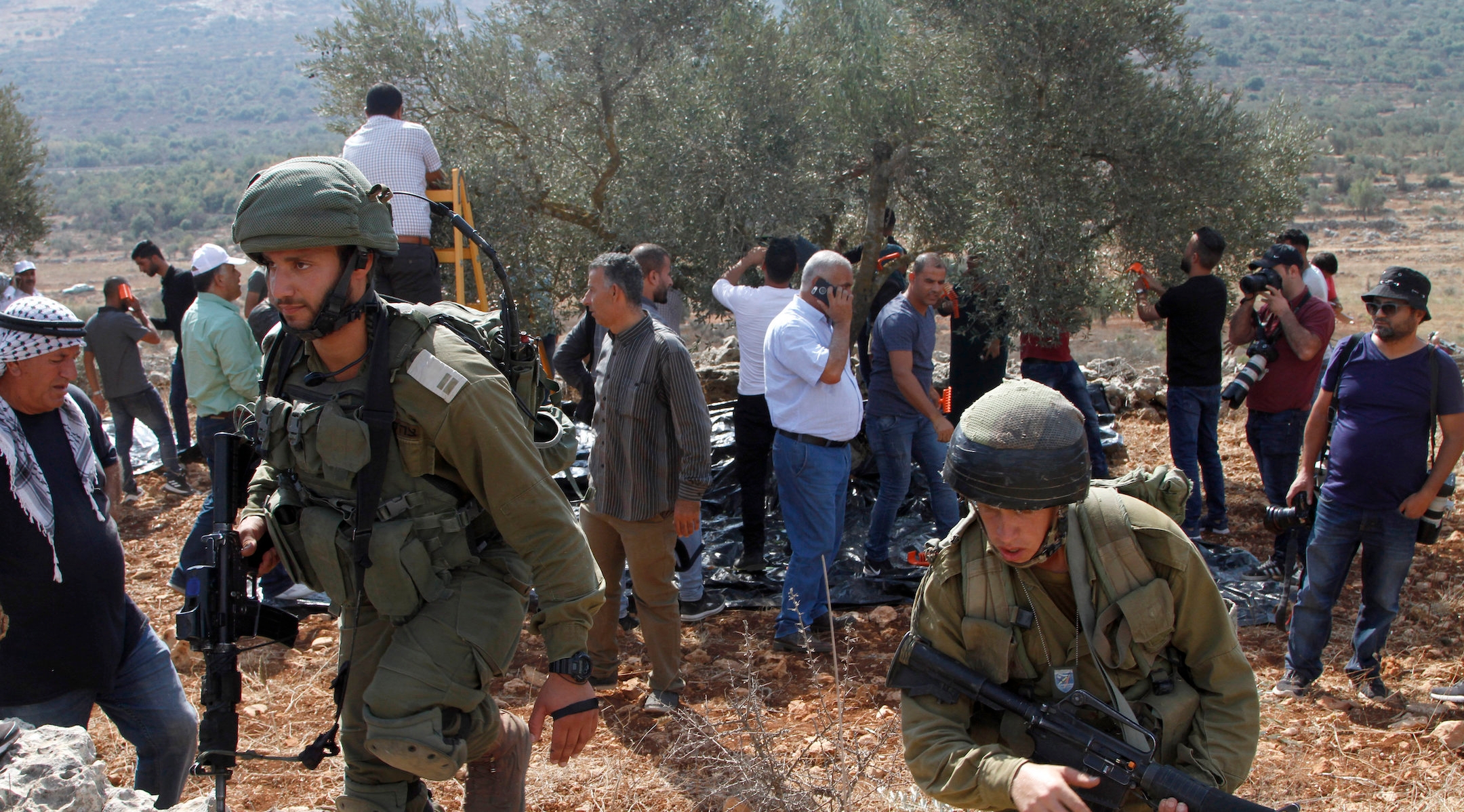(JTA) — Violent attacks against Palestinians in the West Bank are nothing new. But the phenomenon has reached alarming new level of frequency this year.
Violent attacks perpetrated by settlers against Palestinians in the West Bank exceeding last year’s attacks by nearly 50%, according to a report by The Times of Israel.
In 2021, there have been 397 attacks so far, compared to 272 in 2020, The Times of Israel reported based on data from the Shin Bet, Israel’s domestic security agency. According to a report in Haaretz, there have been 135 stone throwing incidents targeting Palestinians this year compared to 90 in 2019.
The violence was especially evident during the annual fall olive harvest this year, often a time of violent attacks on Palestinians who spend their days harvesting from trees located outside of their villages, which are often close to settlements. Dozens of videos of violent attacks and photos of bloodied farmers and shepherds and the Israeli activists who sometimes accompany them were shared to social media this year.
While Defense Minister Benny Gantz has said he will assign more soldiers and police officers to the West Bank to stem the violence, the issue of how to deal with the settlers remains an area of little consensus for the current government, which is composed of a broad coalition of right-wing settler leaders, left and center-left parties, and Arab parties.
In a meeting Monday with U.S. Under Secretary of State Victoria Nuland, Israeli Minister of Public Security Omer Barlev discussed the issue of settler violence. After Barlev, who is a member of the Labor party, tweeted about the meeting with Nuland, Israeli Prime Minister Naftali Bennett, who was a leader in the settler movement before becoming prime minister earlier this year, appeared to respond to Barlev’s comments without naming him. In a tweet of his own, Bennett expressed support for settlers on the receiving end of violent attacks.
“The settlers in Judea and Samaria have been suffering from violence and terrorism, daily, for decades. They are the protective wall for all of us and we must strengthen them and support them, in words and deeds. There are marginal elements in every society, they need to be addressed by all means, but we must not generalize about an entire community,” Bennett wrote.
JTA has documented Jewish history in real-time for over a century. Keep our journalism strong by joining us in supporting independent, award-winning reporting.






